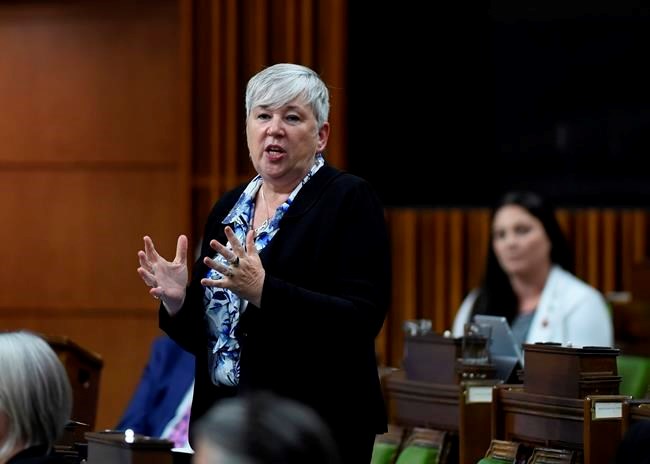The federal government has named a Nova Scotia university president to help resolve the Indigenous lobster fishery dispute.
The Liberal government says it has appointed Allister Surette as a Federal Special Representative to serve as a neutral third-party to communicate with and rebuild trust between commercial and Indigenous fishers.
It says Surette is to gather the different perspectives, seek to build understanding and make recommendations to the ministers of Fisheries and Crown-Indigenous Relations toward a positive resolution.
The government says Surette is to begin work immediately and his first priority will be to meet with Nova Scotia Mi’kmaq and commercial sector leaders and harvesters to listen to their concerns.
He is to foster dialogue with the objective of decreasing tensions and preventing further escalation of the conflict.
Fisheries Minister Bernadette Jordan says commercial and Indigenous harvesters have fished side-by-side for decades and that needs to continue.
"You have shared the wharves, and we must find a way to share the resource as well," she said in a release late Friday.
"While the Government continues to work directly with the Mi’kmaq, nation-to-nation, this structured forum, led by the well-respected Allister Surette, provides the right environment to ensure all voices are heard throughout the process.
"A peaceful resolution is achievable, and this will strengthen our fisheries and our communities."
Surette, who was born and raised in West Pubnico, N.S., has been president and vice-chancellor of Universite Sainte-Anne since 2011.
He was elected to the Nova Scotia legislature in 1993 and served in cabinet as minister of Human Resources and Acadian Affairs.
The federal government says he is deeply aware of the historical and current nature of the relationships among Nova Scotians, including First Nations and commercial fish harvesters.
"It is with great humility and enthusiasm that I begin my work as Federal Special Representative," Surette said in a release.
"I will be listening carefully to the concerns of the treaty nations whose rights were affirmed in the Marshall decisions, as well as stakeholders in the fisheries sector. I look forward to creating a forum for respectful dialogue so that, together, we can move forward."
The 1999 Supreme Court of Canada Marshall decision affirmed a treaty right to hunt, fish, and gather in pursuit of a "Moderate Livelihood" based on the 1760-61 peace and friendship treaties.
Five weeks ago, Mi'kmaq fishers in southwest Nova Scotia began harvesting lobster outside the federally regulated fishing season. They cited the 1999 Supreme Court of Canada decision.
When the First Nation began fishing in September, tensions between their boats and non-Indigenous fishers ignited almost immediately. A series of escalating events ensued, leading to the destruction of a lobster pound that had held the catch of the Indigenous fishers.
Mi'kmaq lobster traps were cut, large crowds gathered at the wharfs and hurled racist insults at fishers, and vehicles were set on fire.
A lobster pound handling Mi'kmaq catch was burned to the ground, and big crowds damaged another lobster pound in New Edinburgh.
The government says in the coming weeks and months, Surette will also meet with commercial leaders and harvesters in other parts of Atlantic Canada, Indigenous leaders in Nova Scotia and in other parts of Atlantic Canada and the Gaspe region of Quebec, provincial governments, and others.
This report by The Canadian Press was first published Oct. 23, 2020
The Canadian Press


